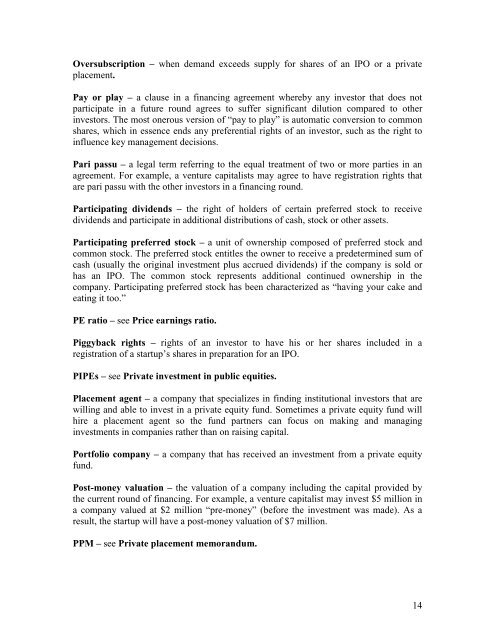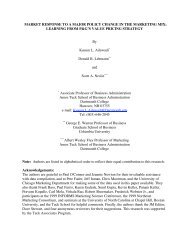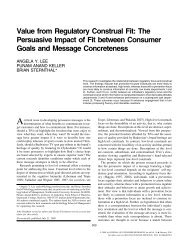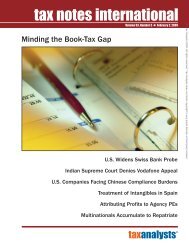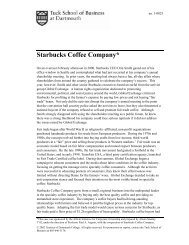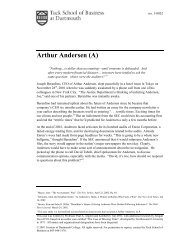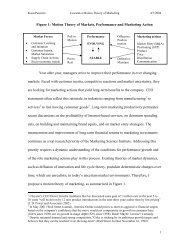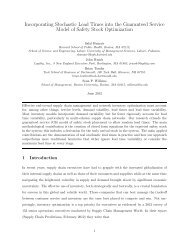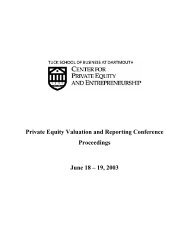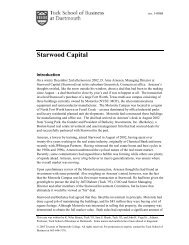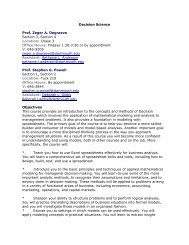Private Equity Glossary - Tuck School of Business
Private Equity Glossary - Tuck School of Business
Private Equity Glossary - Tuck School of Business
You also want an ePaper? Increase the reach of your titles
YUMPU automatically turns print PDFs into web optimized ePapers that Google loves.
Oversubscription – when demand exceeds supply for shares <strong>of</strong> an IPO or a private<br />
placement.<br />
Pay or play – a clause in a financing agreement whereby any investor that does not<br />
participate in a future round agrees to suffer significant dilution compared to other<br />
investors. The most onerous version <strong>of</strong> “pay to play” is automatic conversion to common<br />
shares, which in essence ends any preferential rights <strong>of</strong> an investor, such as the right to<br />
influence key management decisions.<br />
Pari passu – a legal term referring to the equal treatment <strong>of</strong> two or more parties in an<br />
agreement. For example, a venture capitalists may agree to have registration rights that<br />
are pari passu with the other investors in a financing round.<br />
Participating dividends – the right <strong>of</strong> holders <strong>of</strong> certain preferred stock to receive<br />
dividends and participate in additional distributions <strong>of</strong> cash, stock or other assets.<br />
Participating preferred stock – a unit <strong>of</strong> ownership composed <strong>of</strong> preferred stock and<br />
common stock. The preferred stock entitles the owner to receive a predetermined sum <strong>of</strong><br />
cash (usually the original investment plus accrued dividends) if the company is sold or<br />
has an IPO. The common stock represents additional continued ownership in the<br />
company. Participating preferred stock has been characterized as “having your cake and<br />
eating it too.”<br />
PE ratio – see Price earnings ratio.<br />
Piggyback rights – rights <strong>of</strong> an investor to have his or her shares included in a<br />
registration <strong>of</strong> a startup’s shares in preparation for an IPO.<br />
PIPEs – see <strong>Private</strong> investment in public equities.<br />
Placement agent – a company that specializes in finding institutional investors that are<br />
willing and able to invest in a private equity fund. Sometimes a private equity fund will<br />
hire a placement agent so the fund partners can focus on making and managing<br />
investments in companies rather than on raising capital.<br />
Portfolio company – a company that has received an investment from a private equity<br />
fund.<br />
Post-money valuation – the valuation <strong>of</strong> a company including the capital provided by<br />
the current round <strong>of</strong> financing. For example, a venture capitalist may invest $5 million in<br />
a company valued at $2 million “pre-money” (before the investment was made). As a<br />
result, the startup will have a post-money valuation <strong>of</strong> $7 million.<br />
PPM – see <strong>Private</strong> placement memorandum.<br />
14


